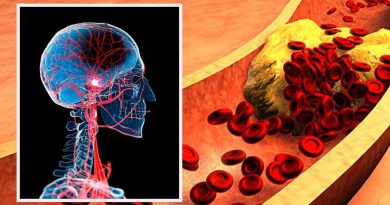Monoclonal Antibodies for COVID-19 Safe, Effective in Transplant Recipients
NEW YORK (Reuters Health) – Using monoclonal-antibody therapies for COVID-19 appears safe and effective at preventing severe disease in recipients of solid-organ transplants, according to a new retrospective study.
“Monoclonal antibody treatment has favorable outcomes with minimal adverse effects in solid organ transplant recipients with mild to moderate COVID-19, researchers write in the journal Open Forum Infectious Diseases. “Earlier administration of monoclonal antibody therapy appears to be more efficacious.”
Transplant patients are considered at high risk for severe COVID-19, especially if they are on immunosuppressive treatment, and also tend to have a poorer response to vaccination.
Monoclonal-antibody therapy, which prevents the SARS-CoV-2 virus from attaching to cells, “is really important for the transplant population because they are less likely to develop their own immunity,” Dr. Raymund Razonable of Mayo Clinic in Rochester, Minnesota, who worked on the study, said in a press release.
To gauge the treatment’s efficacy and safety, he and his colleagues analyzed outcomes of 73 solid-organ-transplant patients who had received either bamlanivimab (75%) or casirivimab-imdevimab (25%) for COVID-19 at their center.
Both drugs are authorized for emergency use in the U.S. to treat mild-to-moderate COVID-19 in high-risk patients, but outcomes in transplant patients have not been well characterized.
Patients in the new study received had received kidney (56%), liver (18%), heart (15%), kidney-pancreas (6%), lung (3%), heart-liver (1%) or pancreas (1%) transplants. The median time from onset of COVID-19 symptoms to antibody administration was four days in the 64 non-hospitalized patients and six days in the nine hospitalized patients.
Only 15% of patients visited the emergency department within the first 28 days of monoclonal antibody infusion. Additionally, 12% were hospitalized within 28 days of infusion for a median of four days. One patient required admission to the intensive-care unit for a non-respiratory complication.
None of the patients who received monoclonal-antibody therapy died, required mechanical ventilation, or experienced graft rejection during the study period.
Adverse events possibly associated with the therapy included fever in four patients, vomiting in two, nausea in one, rash in one, rigors in one, and acutely worsened sinus congestion. No reports of anaphylaxis were made in the cohort.
The researchers also found that the longer the delay between symptom onset and start of therapy, the higher likelihood these patients had of being hospitalized (P=0.03).
“Our data show the outcomes for patients are better if they get infused earlier,” Dr. Razonable said.
He and his colleagues note that their findings require validation in larger randomized-controlled trials.
The study had no external funding, and none of the authors report conflicts of interest.
SOURCE: https://bit.ly/3vCv5N1 Open Forum Infectious Diseases, online June 10, 2021.
Source: Read Full Article



